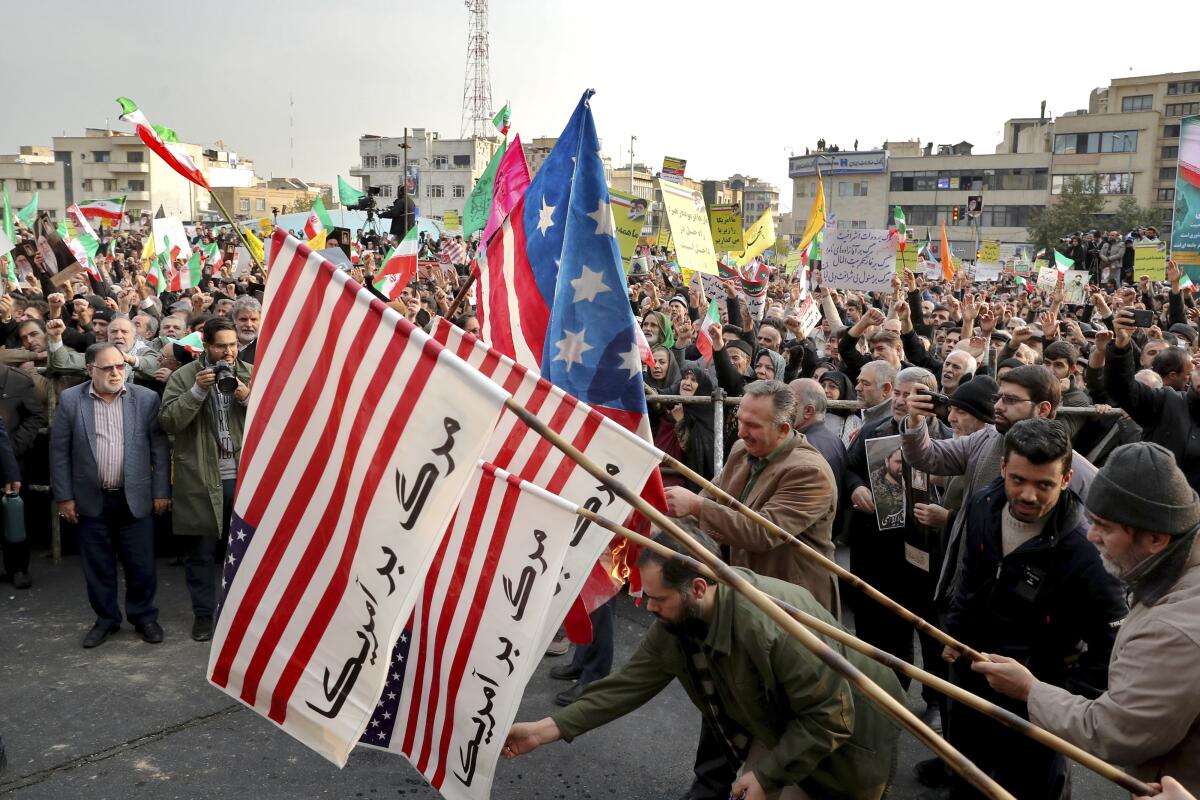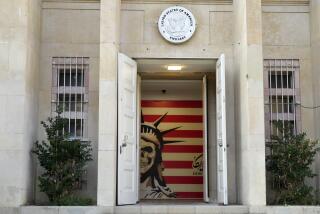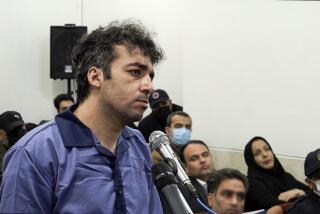Iran supreme leader claims protests were part of a U.S.-backed conspiracy

DUBAI, United Arab Emirates — Iran’s supreme leader on Wednesday claimed without evidence that recent protests across the Islamic Republic over rising gasoline prices were part of a conspiracy involving the U.S., as authorities began to acknowledge the scale of the demonstrations.
Supreme Leader Ayatollah Ali Khamenei made the comment while addressing members of the Revolutionary Guard’s all-volunteer Basij force, which helped put down the demonstrations.
Meanwhile, one lawmaker was quoted as saying authorities arrested more than 7,000 people during the protests, and a security official alleged that demonstrators attempted to take over Iranian state television.
Authorities still haven’t offered any statistics on injuries, arrests or deaths in the protests and security crackdown that followed a government-set gas price increase on Nov. 15. Amnesty International says it believes the violence killed at least 143 people. Iran disputes that figure without offering any evidence to support its claims.
In his comments reported by state media, Khamenei said the Iranian people extinguished “a very dangerous deep conspiracy that cost so much money and effort.” He praised the police, the Revolutionary Guard and the Basij for “entering the field and carrying out their task in a very difficult confrontation.”
Khamenei, who has final say on all matters of state, described the protests as being orchestrated by “global arrogance,” referring to the U.S. He described America as seeing the price hikes as an opportunity to bring their “troops” to the field but the “move was destroyed by people.”
Wednesday marks the 40th anniversary of the creation of the Basij. Videos from the protests purport to show plainclothes Basij officials and others on motorcycles beating and detaining demonstratros.
Meanwhile, the moderate news website Entekhab quoted Hossein Naghavi Hosseini, a member of parliament’s national security and foreign policy committee, as saying more than 7,000 people had been arrested in the demonstrations. He did not elaborate.
Interior Minister Abdolreza Rahmani Fazli also claimed in an interview late Tuesday on state television that “some 500 people” tried to storm Iran’s state television offices. He did not elaborate, and no protests had been reported in the north Tehran neighborhood home to the state broadcaster.
Fazli also estimated as many as 200,000 people took part iin the demonstrations, higher than previous claims. He said protesters damaged more than 50 police stations, as well as 34 ambulances, 731 banks and 70 gas stations in the country.
“We have individuals who were killed by knives, shotguns and fires,” he said, without offering a casualty figure.
Starting Nov. 16, Iran shut down the internet across the country, limiting communications with the outside world. That made determining the scale and longevity of the protests difficult. Although home and office internet has been restored, access on cellphones remains rare.
The gas price hike came as Iran’s 80 million people have already seen their savings dwindle and jobs scarce under crushing U.S. sanctions. President Trump imposed them in the aftermath of unilaterally withdrawing America from Tehran’s nuclear deal with world powers.
More to Read
Sign up for Essential California
The most important California stories and recommendations in your inbox every morning.
You may occasionally receive promotional content from the Los Angeles Times.










